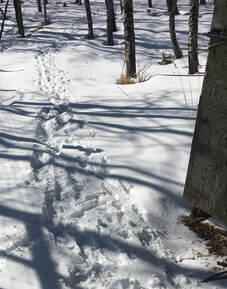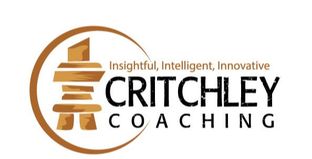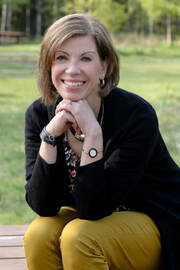
It turns out this pesky, but mighty, little virus is spread not only when droplets of bodily fluid are shared through coughing or sneezing, but also when someone who is infected with it touches a surface with their fingers. In doing so, they deposit live germs on it. Then, along comes an unsuspecting potential victim who also touches the surface with their fingers. Not realizing they may have been infected they carry on with their day, possibly touching their face, which happens to have just the right kind of openings for the virus to enter the body.
It's enough to make a person terrified to go about regular life. It also seems to bring on a strange fixation with toilet paper, but that’s a whole different issue! It certainly has shone a spotlight on the idea of fingerprints, and as always, once something is brought to my attention, I see evidence of it everywhere. I’ve been seeing fingerprints this week.
Jim serves on the Board of Directors at the Leighton Art Centre. The Leighton Art Centre, situated in the beautiful foothills of the Rocky Mountains, provides a place for artists, budding artists, art lovers and nature lovers to gather to celebrate and share not only their talents, but also the beauty of the place itself. One of the offerings Jim has made to the centre, is to invite the public to come to the Centre to participate in one of his nature workshops. This weekend he had planned to offer Stories in the Snow. Jim is very at home in nature and he has spent countless hours, days and years noticing and learning about animals, about how to identify them, how they interact with their environment, and what makes them interesting and special. He’s developed a sharp eye for evidence of their presence.
In Stories in the Snow, he guides his group around the Leighton Art Centre property, finding and pointing out tracks in the snow, made by the many deer, skunks, elk, mice, moose, birds, weasels and even the rare cougar that call the LAC home. When there is snow on the ground, there is no way these animals can go about their lives without leaving prints behind. By studying the tracks, or fingerprints, of these animals, it is easy to discover how they travel, what they eat, who they may fear, what size of groups they move in and more. Sometimes their tracks are purposeful. When one deer or elk leads the herd across a field, the ones following use his or her footprints as their path too. The deliberate steps make travel easier for everyone following behind. Other times, the tracks are simply an unintended consequence of daily living.
On Friday, when Jim was putting the finishing touches on his workshop, we had little Ben visiting. Ben’s mind seems to expand more each week than mine has in the last ten years. This week he had been helping me make muffins and he had evidence of the main ingredient, chocolate chips, on his face. I sent him to the mirror in the hallway to take a look. Later, as is often the case after he has been by for a visit, I noticed tiny hand prints on the mirror. I never rush to remove these. They just bring such a smile to my face when I see them, I’m content to let them stay put.
We, like the animals Jim studies, all leave hundreds and hundreds of ‘fingerprints’ in our wake as we travel about our lives. Just like those left by patients who are carrying the Covid-19 virus, we don’t necessarily realize we are leaving them, and we certainly don’t think about what some of the possible unintended consequences of them are. Ben has no ideas his fingerprints just look like love to me.
We leave fingerprints with our words. We leave fingerprints with our actions, with our promises, with our smiles, with our acceptance, with our efforts, with our talents, with our moods, with our meals, with our traditions, with our presence. We leave fingerprints when we listen, when we frown, when we smile, when we engage and when we don’t. Some of these are the kind we never want to wash off, others are the ones like those I find on my glasses; ones I can’t seem to clean away no matter how hard I try.
We’re told our best defence against this quickly spreading Covid-19 virus is to wash our hands. Up until now, I’ve been assuming that I need to wash my hands because of what I may be picking up. I now recognize that I put down as many fingerprints as I pick up. I also recognize that every single time I come into contact with someone, I leave a fingerprint. I want to believe that I only leave clean, even helpful fingerprints. But I know it is not so. I know some of my fingerprints not only leave a mark, they leave marks that aren’t nearly as cute as Ben’s, or nearly as beautiful as the ones left in the snow by the animals.
To avoid spreading Covid -19, we are to wash our hands; to wash them frequently and for the proper length of time; about twenty seconds. This week, because I’m trying to not only avoid Covid-19, but also to practice meditation, as I wash my hands, I am thinking about all of the fingerprints I will no doubt create before my next handwashing. I am focusing on leaving only the most love-filled, kindest ones behind.
My inquiry for you this week is, ‘What fingerprints am I leaving?’
Elizabeth is a certified professional Leadership Coach, and the owner of Critchley Coaching. She is the founder and president of the Canadian charity, RDL Building Hope Society. She works with corporations, non-profits and the public sector, providing leadership coaching. She creates and facilitates custom workshops for all sizes of groups. She has particular expertise in facilitating Strategic Plans for organizations. Contact Elizabeth to learn how to wash your hands.


 RSS Feed
RSS Feed